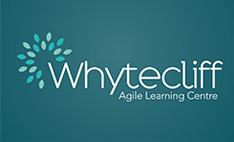Children are considered to be gifted if they demonstrate high intellectual or creative ability or a special set of skills in a specific discipline.
How Whytecliff can Help Kids who are Gifted
(Note: Unfortunately, at this time, we can only accept children with a ‘Gifted’ designation into the program who have either an additional special needs designation, or if the child qualifies to work from an IEP in their current school or program. If this is your circumstance, please talk with us.)
Whytecliff offers the BC Ministry of Education accredited curriculum leading to a British Columbia Certificate of Graduation. Whytecliff also incorporates the new BC Curriculum’s intellectual, personal, and social-emotional proficiencies, with a special emphasis on youth development as well as positive mental health and wellness.
Whytecliff’s inquiry-based approach to learning is ideal for gifted children. Each child’s individualized education plan proceeds from asking questions like, “What is it that they wonder about and want to know more about”? “What questions do they have about the deeper mysteries or aspects of life”? Each child’s efforts are self-paced and self-directed, so gifted children at Whytecliff never feel bored or frustrated for lack of variety or challenge.
Children work on one or two courses at a time allowing for greater enrichment to the curriculum and deep experiences of learning. Children are also able to challenge courses for which they have already gained the knowledge, receive credits for external work they have completed, and are able to receive dual credits for any work they complete at a post-secondary institution.
Our low student to educator ratio allows for appropriate guidance from our highly educated staff and ample opportunities for working in pairs and small groups. Education researchers have found that the range of skills that can be developed with adult guidance or peer collaboration always exceeds what can be achieved alone.
At Whytecliff, while students work at their individual pace, they frequently collaborate with their peers, and they are always learning with their primary teacher, thus maximizing their learning through social interaction.
